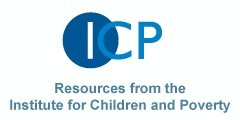 |
| In This Issue... |
| |
 |


 |
| Other Social Work News... |
Haiti’s Mental Health System in Collapse
The New York Times reports that in a country where mental health has never been a priority, a natural disaster has brought the system to the brink.
Higher Mental, Physical Health Risks in Children With Sickle Cell Anemia
According to the Los Angeles Times, a CDC study finds that black children with sickle cell disease are at high risk for intellectual disabilities and visual and hearing deficits and are twice as likely to have seen a mental health professional.
Recession’s Psychological Toll
The Wall Street Journal reports a high increase in the number and urgency of calls to company employee assistance programs over the past couple years.
Laughter Best Medicine for Comedian in Recovery
The Denver Post interviews a comedian who share his thoughts, wisdom, and laughter about life in recovery from drug and alcohol addiction. |
 |

 |
| Continuing Education |
Social Work Today’s CE program has offered hundreds of social workers from across the country the opportunity to earn CEs from the comfort of their homes or offices.
Simply read an issue of the magazine, complete the online exam or the printed exam published in the magazine, and earn 2 CE credits! PLUS you have the opportunity to earn CE credits from past issues, too! See what all the talk is about—visit www.SocialWorkTodayCE.com today for more information! |
 |

 |
| Gift Shop |
Whether you’re searching for yourself or for gifts to give professional colleagues, show your professional pride with quality social work themed items like shirts, coffee mugs, tote bags, mouse pads and more. It's easy and affordable on the Social Work Today online Gift Shop. Check out our secure online shop today or call toll-free 877-809-1659 for easy and fast ordering

|
 |
|
 |
| Editor’s E-Note |

Social workers in the field of aging know a quiet revolution has been going on for some time. Pioneers such as the late Gene Cohen, MD, PhD, author of The Mature Mind: The Positive Power of the Aging Brain, and Robert Butler, MD, president and CEO of The International Longevity Center, are two of the seminal figures in the positive aging movement. It was only 30 years ago that aging was defined by the “D” words: decline, disability, dependency, and so on. Encouraged in the last few decades by the work of Cohen and Butler, both laypeople and professionals have discovered that for many reasons, aging does not have to be what it used to be. Older adults now have greater ability and opportunity to discover untapped potential in later years, whether through encore careers, lifelong learning, volunteerism, civic engagement, or intergenerational learning.
Our exclusive this month is about intergenerational programming, which, says the article’s author, “increases opportunities for social interaction, reduces the risk of social isolation, and promotes well-being in older adults. … When old and young people come together in situations that recognize the contributions of each, it can foster positive attitudes and reduce negative stereotypes.”
Old and young both benefit from intergenerational learning, and that “is a good thing” to quote a well-known lifestyle maven and boomer entrepreneur who, at the age of 68, hasn’t slowed down one bit, except for her brief incarceration!
Enjoy the article!
We welcome your comments at SWTeditor@gvpub.com or on our Facebook page. Become a fan at www.SocialWorkToday.com.
— Marianne Mallon, editor |
 |
 |
| E-News Exclusive |
 |
Intergenerational Programming: A Path to Positive Aging
By Aaron Weintraub, MS
With reason to expect a longer and healthier life span, more older adults are looking for ways to stay active. One exciting way for older adults to stay meaningfully engaged is by participating in intergenerational programming, activities for which older adults and children come together for mutual beneficial interaction. The potential benefits of the intergenerational programming paradigm have been recognized as having global significance. The United Nations’ Second World Assembly on Aging recognized “the need to strengthen solidarity between generations and intergenerational partnerships, keeping in mind the needs of both older and younger ones, and encourage mutually responsive relationships between generations.” Intergenerational programming has been used to strengthen the capacity of communities, families, and individuals in diverse areas such as cultural transmission, HIV prevention, literacy, dementia care, social engagement, emotional development, service learning, and human rights.
How Do Intergenerational Programs Work?
Programs specifically designed to bring together older adults and children can take a variety of forms and target many different outcomes. Planned intergenerational activities range in intensity from one-time visits for a specific purpose such as community service to a shared-site program offering concurrent child care and adult day services. Shared-site programs give elders and children frequent and sustained contact that allows relationships to develop.
Full Story » |
 |
 |
| Recently in Social Work Today… |

Social Networking in Addiction Recovery — Raising Hopes, Concerns
Social networking is everywhere, even in the most unlikely places. Some sites are taking what goes on “in the rooms” into cyberspace. Read more »
The Financial Burden of Cancer Care
Research finds financial burdens of cancer care make it hard for patients to focus on recovery. Read more »
Limb-Loss Support Group Gets a Leg Up — With Lefty
People who have had amputations face new challenges and doubts. Simply walking across the room becomes an impossible dance with a titanium robot. The University of Michigan Health System has developed a unique solution for helping patients confront life with one limb less: a limb-loss support group. Read more » |
 |
 |
| Ask the Expert |
Have a question you want answered by one of our social work experts? Send your question to SWTeditor@gvpub.com and it may be featured in an upcoming e-newsletter or print issue. |
 |
 |
| Advertising Opportunities |
 Have a product or service you want to market to social work professionals, or an open position that you need to fill quickly? Social Work Today offers
many flexible advertising programs designed to maximize your results.
From print advertising to E-newsletter sponsorships, Web site
advertising to direct mail opportunities, Social
Work Today helps achieve your goals. Have a product or service you want to market to social work professionals, or an open position that you need to fill quickly? Social Work Today offers
many flexible advertising programs designed to maximize your results.
From print advertising to E-newsletter sponsorships, Web site
advertising to direct mail opportunities, Social
Work Today helps achieve your goals.
E-mail our experienced
account executives today for more information or call 800-278-4400!
AlliedHealthCareers.com is the premier online resource to recruit social work professionals.
Post your open positions, view resumes and showcase your facility's
offerings all at AlliedHealthCareers.com!
To unsubscribe from this mailing list,
simply send a message to SWT_Newsletter@gvpub.com with "Unsubscribe"
in the subject line.
To change your e-mail address, please visit
our Web site to unsubscribe your old address
and sign up with your new one. |
 |
|

